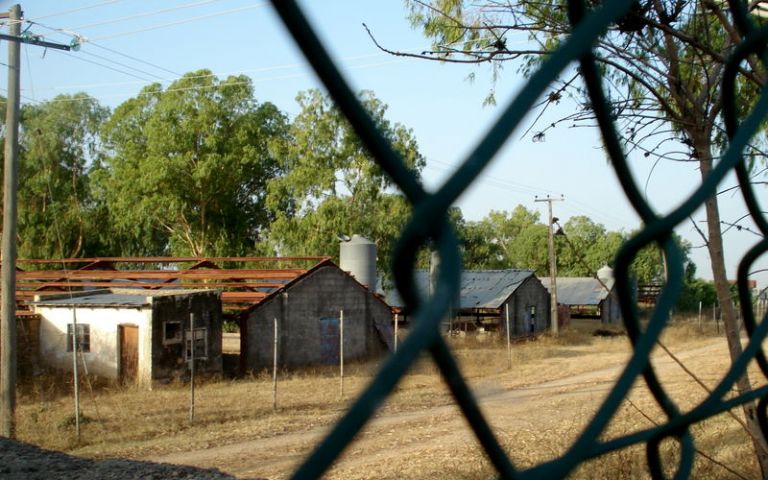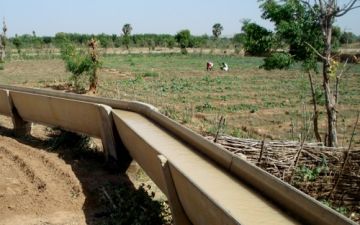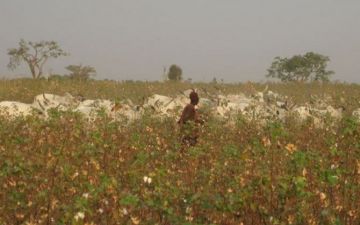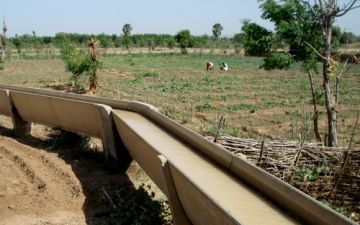Twenty-five years ago Abdullahi Tijjani had a vision for Kuki, a village in the north of Nigeria he became chief of at age 14: "Hunger will become a thing of the past once we marry modern technologies and traditional farming," he told reporter David Hecht when they met in 1984 in the mud-brick structure he called his palace.
Tijjani had reason to feel inspired. Nigeria's oil-rich military government had just completed a new dam nearby and a local oil tycoon was setting up a 3,000-acre industrial irrigation farm. But that industrial farm now lies abandoned and farmers of Kuki never got access to water from the dam. "The marriage failed," Tijjani told Hecht 25 years later. Locals became so disheartened many gave up farming and moved to cities. "Now we're even losing our ability to subsist," he said.
A growing number of people in what is Africa's most populous nation of 140 million are going hungry. And as poorer neighboring countries export more food to Nigeria in exchange for petrodollars, people there also go hungry. In 2005 thousands of children in neighboring Niger died of malnutrition not because the country had had a particularly bad harvest but because there was a food shortage in Nigeria and people in Niger could not afford the ensuing higher prices. Experts say that even though Nigeria faces a serious food security threat they also recognize the country's potential. Nigeria has enough fertile land to feed itself and much of the region, if only its oil wealth were invested more wisely.





